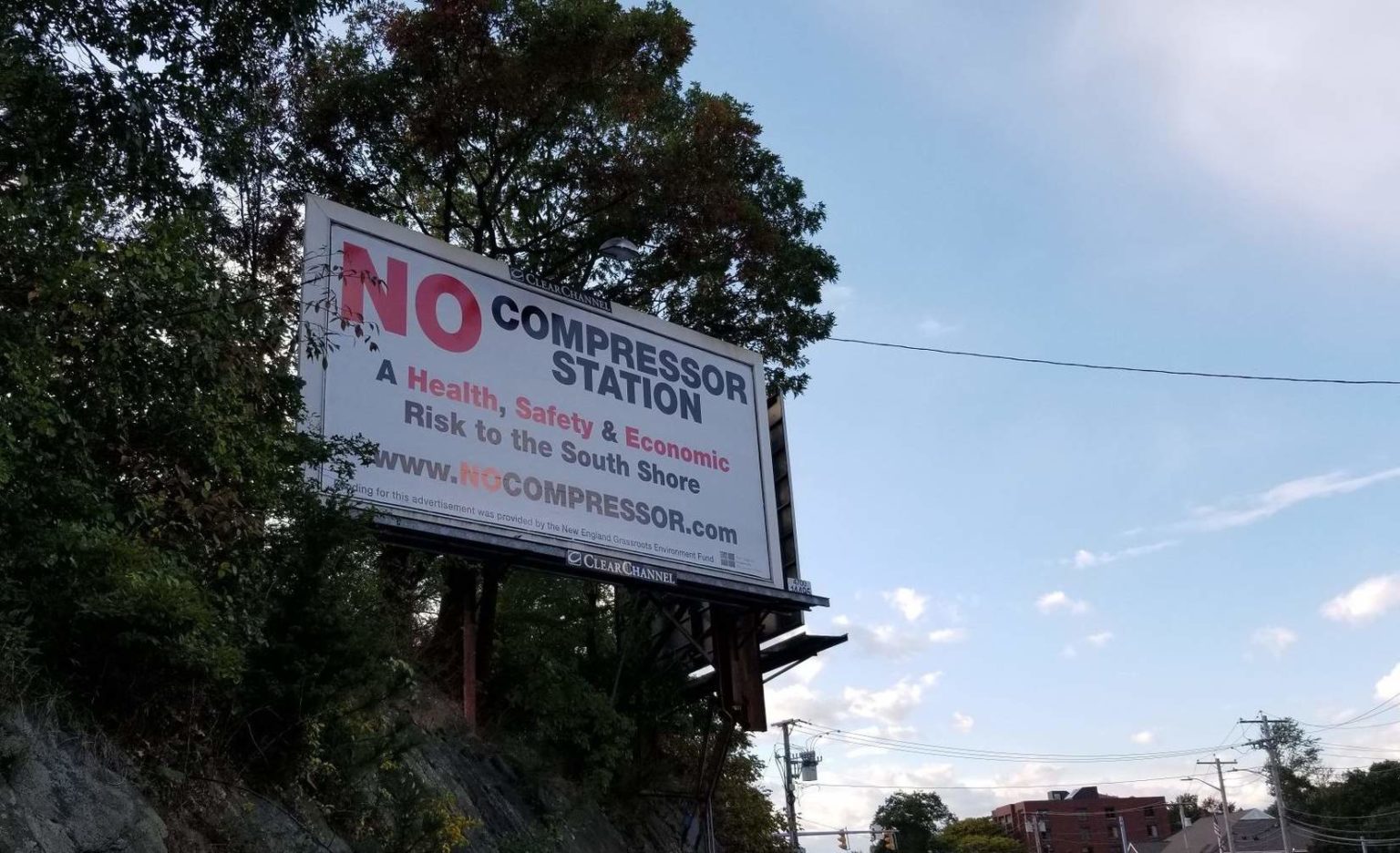Massachusetts has contracted two major studies of its natural gas infrastructure, billing both assessments as “independent” efforts. Yet the fact that they use industry consultants and data has raised doubts among critics about their level of objectivity.
While one study is evaluating the state’s overall gas distribution system, the other assessment explores the potential health risks associated with Enbridge’s proposed compressor station in Weymouth, just south of Boston.
Last week the Massachusetts Department of Public Utilities (DPU) announced the hiring of Canadian consulting firm Dynamic Risk Assessment Systems, Inc. to evaluate the state’s gas distribution system following the deadly explosions that rocked Columbia Gas of Massachusetts’ pipelines in the towns of Lawrence, Andover, and North Andover.
The September blasts killed 18-year old Leonel Rondon, injured dozens of other residents, set fire to scores of homes, and left thousands without gas service, which has yet to be restored in full.
A National Transportation Safety Board investigation faulted an overpressurizing of the system, which occurred during pipeline replacement work in which a Columbia Gas contractor disconnected a pressure regulator-sensing line, and recommended a series of “urgent” safety measures. However, Columbia Gas and its parent company NiSource are also facing a federal criminal investigation.
Questions of Independence from Industry
Dynamic Risk, the consultant now charged with evaluating the state’s gas system, works frequently for the oil and gas industry.
According to the company’s website, Dynamic Risk develops “solutions that anticipate and satisfy the industry’s needs” through a “partnership model with our clients.” Resumes of several company employees and executives show a long list of industry clients, including such powerhouses as Enbridge, TransCanada, and Suncor Energy.
Enbridge is also one of the main players in the Massachusetts gas market.
Perhaps even more alarming, Dynamic Risk has worked on at least one previous occasion for a pipeline company while providing a public body a supposedly independent risk assessments of its system.
As DeSmog revealed last year, while reviewing Enbridge’s Line 5 pipeline for the state of Michigan, Dynamic Risk was working directly for Enbridge on a related project. Documents obtained through an open records request even suggested Dynamic Risk might have misled Michigan about this apparent conflict of interest.
Enbridge did not respond to a request for comment.
Trevor MacFarlane, the president of Dynamic Risk, said his company is not authorized to comment on the study and referred inquiries to the Massachusetts DPU. Asked about Dynamic Risk’s history and its ability to provide an unbiased study, a DPU spokesperson pointed DeSmog to its press release announcing the hiring.
According to the DPU, the state’s gas distribution companies will fund the study, which will produce a report examining the physical integrity and safety of the natural gas distribution system as well as its operation and maintenance policies and practices.
Governor Charlie Baker called the study a “comprehensive safety review” which will further “the steps taken by our Administration to ensure the safety of communities.”
Yet critics have noted that the DPU under Baker is greatly understaffed and thus unable to provide strong oversight of the gas apparatus.
“A strong DPU should have been on top of this, conducting such an evaluation,” said gas leak expert Bob Ackley of Gas Safety USA, Inc. Ackley, a Massachusetts resident who visited the September explosion sites, is critical of DPU‘s approach to the incidents.
Instead, according to Ackley, the industry is entrusted with monitoring its own safety while residents are left in the dark — until disaster strikes.
“We should be tasking our own DPU with releasing annual operator reports submitted to PHMSA [the federal agency monitoring pipeline safety] each year,” he said, “thereby letting people know where there are thousands of miles of cracked and leak-prone pipelines in Massachusetts so property owners can be more vigilant about their own safety. But currently gas utility operators roll the dice with their aging infrastructure.”
Gas Compressor Station Controversy
Meanwhile, in the coastal town of Weymouth, just south of Boston, the state has been funding a health impact assessment (HIA) for Enbridge’s proposed compressor station as part of the company’s Atlantic Bridge project. Governor Baker ordered the HIA following mounting pressure by residents and activists opposing the station.
While most compressor stations, which emit noxious gases as they propel natural gas along pipeline intervals, are located in sparsely populated rural areas, Enbridge plans to build its Weymouth station in a residential area already burdened by industrial facilities.
To conduct the HIA, the state has contracted the Metropolitan Area Planning Council, a public agency that has been tasked with examining the possible health effects of the proposed station.
Questions from the community about the health impact assessment of Enbridge’s proposed Weymouth compressor station. Credit: Fore River Residents Against the Compressor Station, used with permission
Yet in a community meeting last week, the MAPC publicly revealed it is relying in part on air quality data from Enbridge. This data includes the kinds and levels of projected emissions from the station, as well as their projected dispersion.
This revelation was met with dismay by the more than one hundred people in attendance, who asked why the MAPC did not produce such data independently. Barry Keppard of MAPC, who’s leading the HIA, responded that the agency is working within a limited budget and timeframe. He added, “We are using the best available data.”
After gas leak expert and activist Nathan Philips interjected, saying, “It’s misleading to say it is the ‘best’ available data, when it’s the only one you have,” Keppard corrected himself.
Keppard tried to reassure the crowd of the health assessment’s thoroughness and depth, adding, “This assessment has had a great amount of public input and community involvement.”
Women from the group Mothers Out Front voice their opposition to the proposed Enbridge compressor station the night of a community meeting. Credit: Viki Bok, Mothers Out Front, used with permission
Keppard told DeSmog that MAPC has not received any funding from Enbridge for the study and that the agency received input during the assessment process from the company during one telephone conversation with its representatives.
The MAPC has collected its own pollution data about existing air conditions in the area, but has done so for only three months this past summer. Members of the audience also criticized the MAPC for not collecting data on existing methane levels to compare with the station’s future methane emissions, a significant driver of climate change. Keppard agreed it was one of the assessment’s blind spots.
Clock Is Ticking
A final report is due in December, a month before the state has to decide whether to grant the station a final air permit.
The community’s skepticism is understandable given the compressor project’s history of perceived conflicts of interest. As DeSmog has extensively reported, the contractor conducting the environmental assessment for the Federal Energy Regulatory Commission (FERC) was working at the same time for Enbridge (then Spectra Energy).
Then, the state’s Department of Environmental Protection secretly allowed Spectra to preview and edit its draft air permit for the compressor station, a revelation that led to protests at the agency’s offices.
Main image: A billboard opposing Enbridge’s proposed Weymouth gas compressor station. Credit: Fore River Residents Against the Compressor Station, used with permission
Subscribe to our newsletter
Stay up to date with DeSmog news and alerts









